Joko Widodo is soon to take office as Indonesian president. But with economic growth cooling and growing concerns about graft and protectionism, the new leader faces major challenges, as economist Rajiv Biswas tells DW.
Former Jakarta governor Joko "Jokowi" Widodo is scheduled to be inaugurated as president on October 20, after defeating his presidential contender, ex-general Prabowo Subianto, in the July 9 polls. For the next five years, the 53-year-old politician will have to deal not only with a hostile parliament - given that most of its members are aligned with the losing candidate - but also with reviving Southeast Asia's largest economy whose growth has started to slow over the past months and whose current account deficit remains high.
Although Jokowi promised market-friendly policies, he also set a more nationalist tone in the campaign trail, favoring an agenda focused on protecting local resources and firms, and thus adding to concerns among foreign investors.
Rajiv Biswas, Asia-Pacific Chief Economist at the analytics firm IHS, says in a DW interview that if President Jokowi's incoming government is not able to pursue key reforms to improve the business climate and make Indonesia more competitive, global investors could easily lose confidence in the business outlook.
DW: Many analysts argue that Indonesia's economy has underperformed in recent years. Bank Indonesia - the country's central bank – has cut its full-year forecast to 5.1 percent from as high as 5.9 percent. Why does the economy seem to be losing vitality?
Biswas: "There is a significant risk that the incoming government could resort to populist policies to boost government spending"
Rajiv Biswas: Growth momentum in the Indonesian economy has moderated over the last eighteen months due to a weaker performance by the export sector, together with the impact of tighter monetary policy as the central bank has hiked interest rates to control inflationary pressures. This has resulted in the growth of the Gross Domestic Product (GDP) moderating from a pace of around 6 percent a year ago to around 5.1 percent year-on-year growth in the second quarter of 2014.
What impact is the new president likely to have on the nation's economic fortunes?
The new president's term will be crucial for the Indonesian economic outlook. President Yudhoyono will step down after ten years of office during which time he left a legacy of democratic governance and steady progress in economic development.
Incoming Indonesian President Jokowi will play a decisive role in shaping Indonesia's future economic policies and deciding whether to pursue a strategy of globalization and greater international integration or a more nationalist, protectionist policies that could derail Indonesia's economic growth momentum.
A key additional challenge Jokowi faces is that his PDI-P-led coalition government currently only controls 44 percent of seats in the Indonesian parliamentary reforms which could create serious legislative hurdles to Jokowi’s reform agenda.
The prospects for Indonesia's medium term outlook will be shaped by the policy agenda of the incoming President and the type of economic ministers that are appointed. As there has been a significant shift towards more nationalistic policies during the last two years, mainly in the resources sector, a key concern for global investors is whether such policies could also be adopted in other industry sectors.
Incoming President Jokowi needs to undertake major microeconomic reforms in key industries, says Biswas
What will be the main economic challenges facing the future economic administration?
Although Indonesia made considerable progress in macroeconomic stabilization under President Yudhoyono, a key challenge for the Jokowi administration will be to implement crucial microeconomic reforms. Among the key priorities are to accelerate infrastructure development for electricity generation and transmission, ports, airports and roads, and significantly improve education and vocational training to build up Indonesia's human capital in key industry sectors.
What policies should be introduced to boost economic growth?
The incoming Indonesian government led by President Jokowi needs to undertake major microeconomic reforms in key industries such as power generation, shipping and ports in order to create more competitive industries that will help to catalyse economic development. The new government also needs to move forward with trade and investment liberalization initiatives that are being negotiated under the ASEAN Economic Community roadmap due to be implemented in 2015.
How is corruption - which is believed to be rampant in Indonesia - affecting economic expansion and development?
According to Transparency International's (TI) global ranking, Indonesia continues to have high levels of corruption and is ranked relatively poorly in the TI global corruption index.
DW recommends
Jokowi's winning margin 'too big to be overturned'
Prabowo's coalition could 'undermine' a Jokowi presidency
Election dispute may have 'polarizing effect' on Indonesians
While President Yudhoyono's government has tried to tackle the issue during his presidency, and some progress has been made, corruption remains a key negative factor confronting global investors. "Jokowi" is campaigning on a strong anti-corruption policy platform and has gained strong grassroots support from voters for his anti-corruption policies.
What measures should the new government take to combat corruption?
The incoming government should strengthen the powers and resourcing of anti-corruption units in the national government and implement global best practice methods in government ministries and state-owned corporations. To achieve this, Indonesia should also seek the help of other nations that have a strong track record in combating corruption, such as New Zealand and the Scandinavian countries.
There are many concerns over the country's widening current account deficit. What are the main reasons for the high rates of trade deficit and what can be done to tackle the problem?
Indonesia had maintained regular trade surpluses in recent years until the second half of 2012, when sharp falls in world traded steaming coal prices and some declines for other commodities contributed to a deterioration of the country's trade balance into a deficit.
Strong growth in domestic demand continued to drive up imports, which worsened the archipelago's trade deficit during 2013, becoming a significant drag on economic growth.
Indonesia's trade balance has been hit further in 2014 due to the decision by the Indonesian government in January to ban exports of some unprocessed mineral ores, notably copper and nickel. Discussions are underway between major mining companies and Jakarta to try to find some short-term solution.
The new legislation introduced in January will further extend the ban to some other unprocessed ores in 2017. The aim of the government is to encourage mining companies to do more ore processing in Indonesia, although the risk is that some mining companies could shift production to other nations if it is uncompetitive to do processing in Indonesia.
There are concerns that the next government could implement populist policies. What can the future administration do to eliminate poverty and redistribute wealth in the country without resorting to budget-busting policies?
Narrowing the wealth gap and providing affordable healthcare are some of Jokowi's major challenges
There is a significant risk that the incoming government could resort to populist policies to boost government spending, such as large rises in wages for public sector workers or major increases in social expenditure on areas such as health care. This could gradually erode the progress made over the last decade in reducing government debt levels.
The incoming government needs to carefully match future expenditure increases to GDP growth and rises in government revenues, so as to maintain low fiscal deficits and constrain government debt to GDP ratios. One important measure would be to reduce government fuel subsidies, which are still a major drain on government fiscal resources.
How are foreign investors viewing the country in terms of an investment destination and what kind of a government will they like to see?
Foreign investors significantly re-rated Indonesia between 2010 and 2013 as an investment destination, with large increases in foreign direct investment as well as investment flows into the Indonesian stock market. A significant factor driving this re-rating was the improving macroeconomic situation, which resulted in Indonesia's sovereign ratings being raised to investment grade by the major rating agencies.
Foreign direct investment flows into Indonesia have doubled between 2010 and 2013.
However, if the next government does not pursue key reforms to improve the business climate and make Indonesia more competitive, global investors could easily lose confidence in the business outlook.
Foreign direct investment flows into Indonesia have doubled between 2010 and 2013, says Biswas
How do you expect the Indonesian economy to perform over the coming 12 months and what is the medium term outlook?
IHS forecasts that the Indonesian economy will grow at 5.2 percent in 2014 and 5.5 percent in 2015. However the outlook for 2015 and over the medium term depends to a large extent on continued sound macroeconomic management by the incoming government and sustained pro-market reforms.
Rajiv Biswas isAsia-Pacific Chief Economistat IHS, a global information and analytics firm. He is responsible for coordination of economic analyses and forecasts for the Asia-Pacific region.
source:
http://www.dw.de/jokowi-presidency-crucial-for-reshaping-indonesian-economy/a-17723636
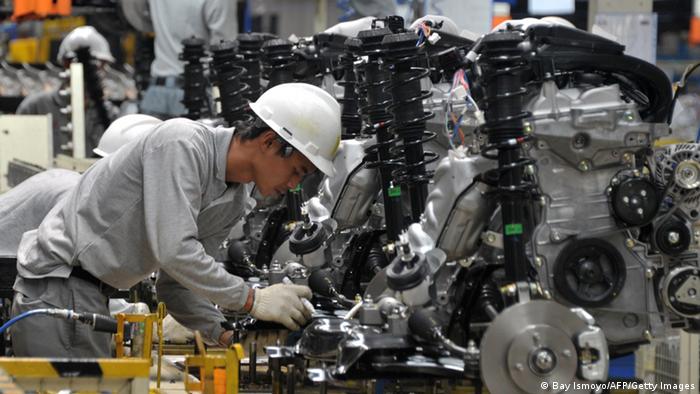
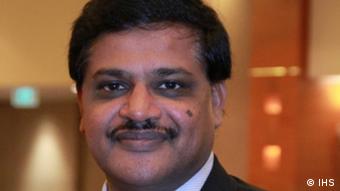
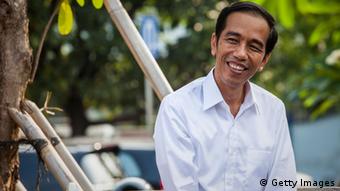
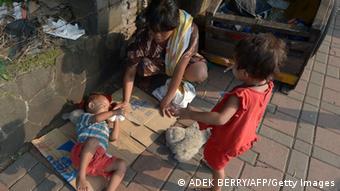
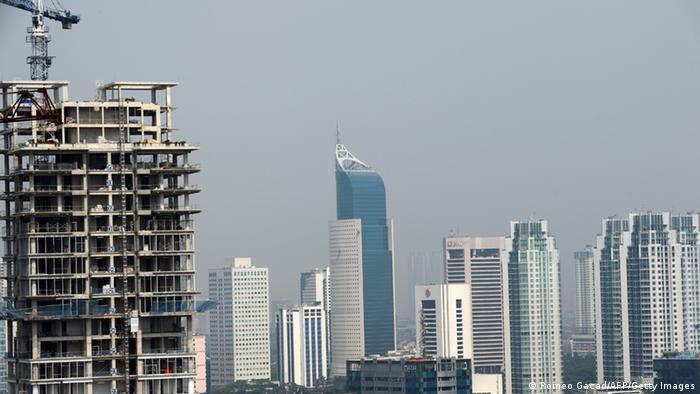
Tidak ada komentar:
Posting Komentar